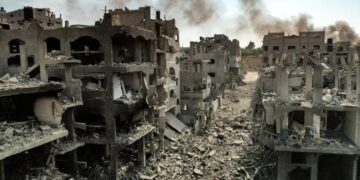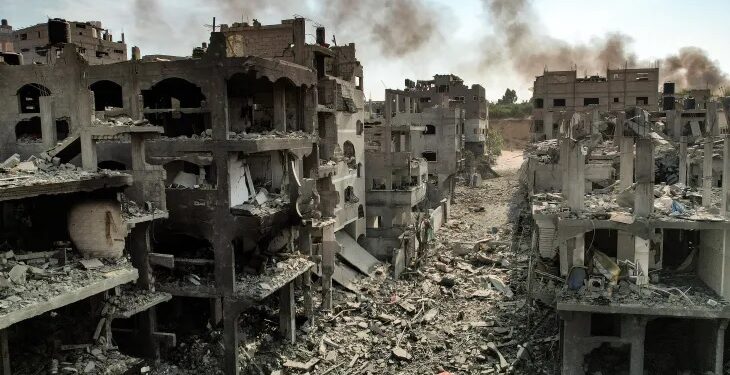By Emmanuel Nduka
Egypt has postponed an emergency Arab summit originally scheduled for February 27, after U.S. President Donald Trump’s controversial proposal to remove the Palestinian population from Gaza sent shockwaves across the region.
The summit, now set for March 4, will allow further “logistical and objective preparations,” according to Egypt’s Foreign Ministry.
Trump’s proposal, which suggests resettling Palestinians outside Gaza, has been met with universal rejection from Palestinians and Arab nations, who see it as destabilizing. Israel has welcomed the proposal, while human rights groups have denounced it as forced displacement, potentially violating international law.
Hamas, in the meantime, announced that it would release the last six living Israeli hostages as part of the first phase of a ceasefire agreement. Egyptian President Abdel Fattah Al Sisi is expected to travel to Riyadh on Thursday to discuss an Arab plan for Gaza, which could include up to $20 billion for reconstruction.
According to sources, Arab states, including Saudi Arabia, Egypt, Jordan, the UAE, and Qatar, are set to review the Arab plan in Riyadh before presenting it at the March 4 summit. One of the key elements of the plan is a $20 billion contribution from Arab and Gulf states for Gaza’s reconstruction over a three-year period.
A senior source familiar with the matter said the Palestinian Authority’s cabinet estimated the first phase of the plan would cost approximately $20 billion over three years. Discussions are still ongoing regarding the exact financial contribution by regional powers.
“My conversations with Arab leaders, most recently King Abdullah, have convinced me they have a really realistic appraisal of what their role should be,” said Senator Richard Blumenthal, who spoke to reporters in Tel Aviv during a visit to Israel on Monday.
Israel’s Foreign Minister Gideon Saar expressed that Israel was awaiting further details on the plan but emphasized that any solution involving Hamas in Gaza would not be acceptable. “When we hear it we will know how to address it,” he added.
Qatar, a key mediator in the Gaza conflict, reiterated that it is for Palestinians, not outsiders, to determine the future of Gaza. “From our perspective, this is a Palestinian question on what happens post this conflict,” said Qatar’s Foreign Ministry spokesman Majed Al Ansari. “It is a Palestinian question on who represents the Palestinians in an official capacity and also the political groups and parties in the political sphere,” he added.
As the first phase of the Gaza ceasefire continues, with the release of over 1,100 Palestinians from Israeli custody in exchange for 19 Israeli hostages, Qatar has warned that humanitarian aid to Gaza is still insufficient. “The aid that enters the Gaza Strip today is insufficient,” Ansari said, criticizing the use of humanitarian aid as a bargaining chip in negotiations.
The ceasefire, which has largely halted the violence since January 19, is set to expire on March 1, and negotiations for the next phase of the truce will begin this week. The second phase is expected to focus on the release of all remaining hostages and the path toward a permanent end to the conflict.



































